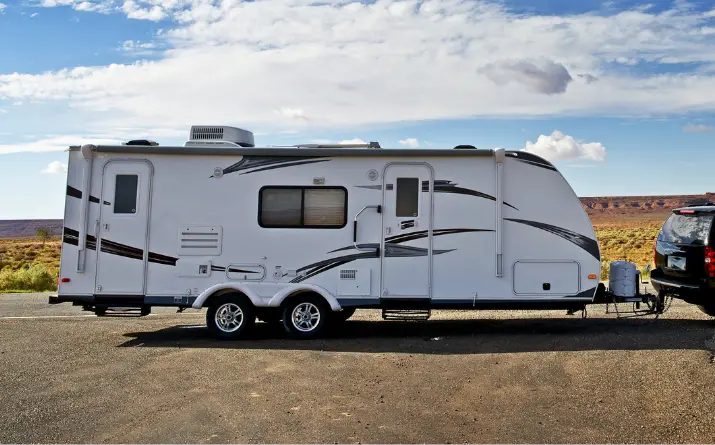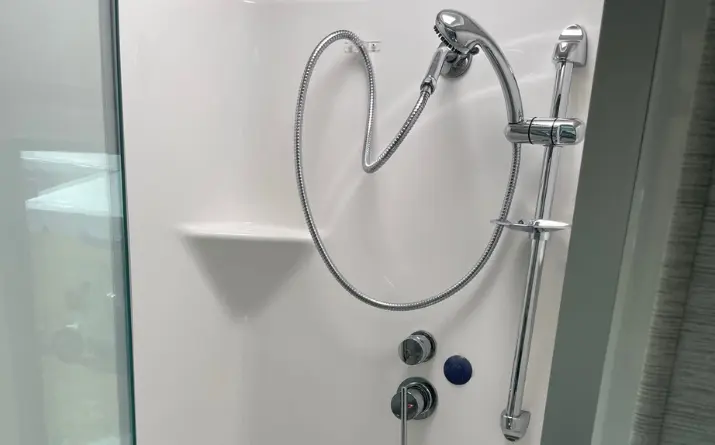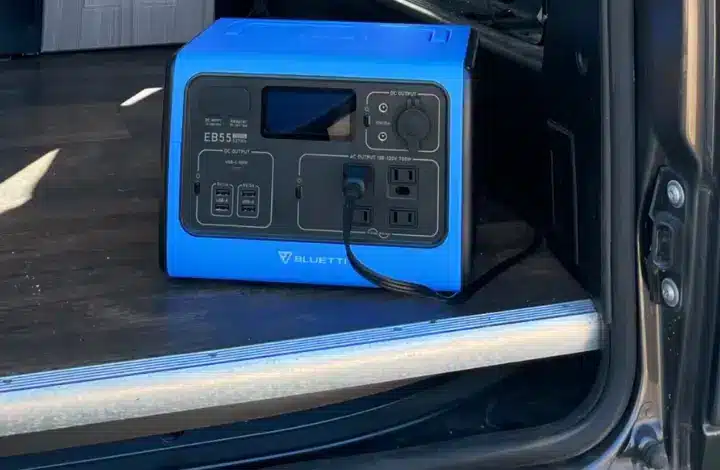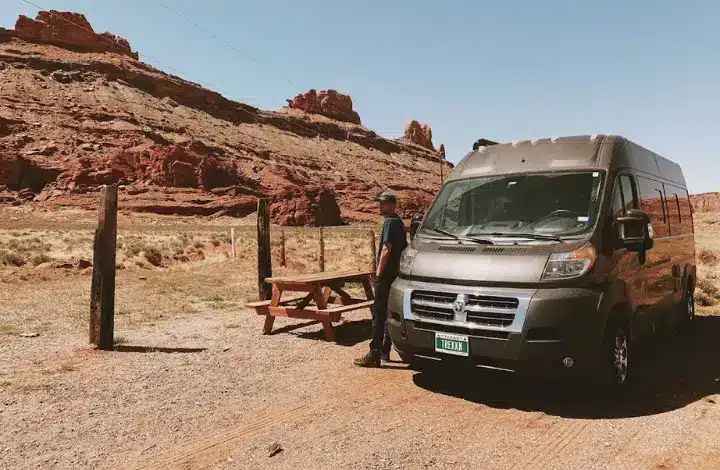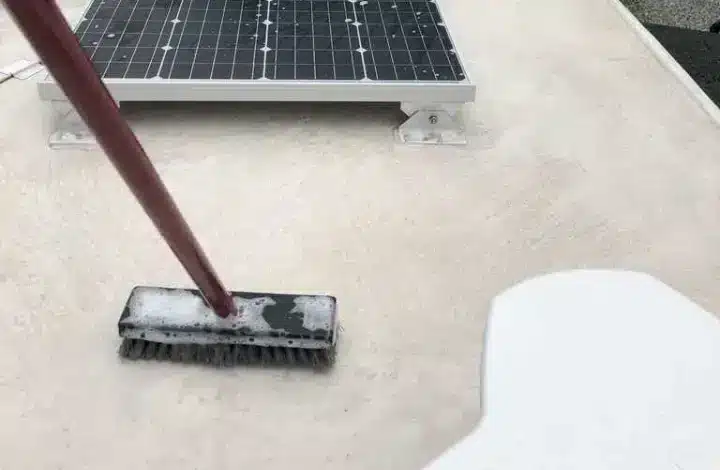What To do When Your RV Breaks Down Unexpectedly
Every RVer hopes for a smooth journey, but the reality is that breakdowns and unexpected repairs are part of the adventure. Knowing what to do when your RV breaks down or something else goes wrong can be the difference between a minor hiccup and a major headache.
My experience has been that about 25% of drive days see some kind of mishap or unexpected repair, whether major or minor. I always feel like I’ve gotten away with something if I pull into a campsite and everything works fine.
That said, I still love RVing, and there are steps you can take to prepare for the most likely issues you’ll encounter.
This guide offers practical tips on handling breakdowns, finding help on the road, and other essential considerations.
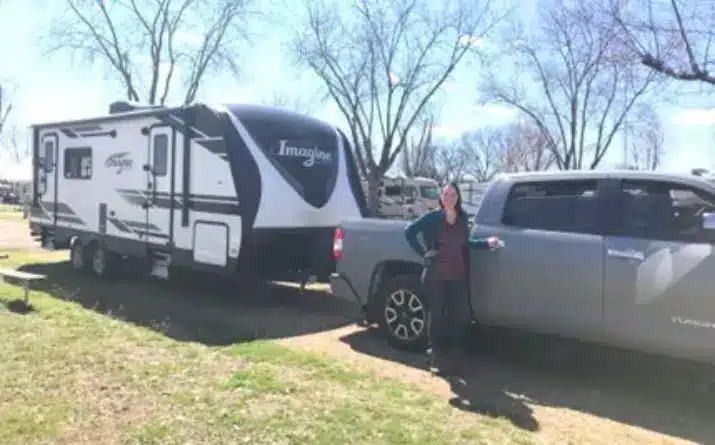
Preparing for Breakdowns
Any time you get into a vehicle, you’re risking the possibility of a breakdown. Whether you drive a motorhome or tow a trailer with a truck, you’ve got an engine, tires, axles, and other moving parts flying down the road at speed.
Or not. Recently, I was towing my fifth wheel down the interstate when my truck went into “limp mode,” leaving me crawling down the highway at a max speed of 15 mph. I did not make a lot of friends on that highway.
How to Be Prepared
You can’t plan for every scenario, but a bit of basic preparation is key to managing unexpected breakdowns:
Finding a Technician or Getting Help
When a breakdown occurs, finding the right help is crucial. If you’re stranded at the side of the road, roadside assistance is a good first step.
You might have roadside assistance included with your insurance, or you might pay for services through AAA or Good Sam.
Whatever you use, keep their information and your policy number handy in case you need to reach them.
If you need a tow, make sure the tow company has a vehicle that can tow your RV (or truck/trailer). A Class A motorhome or a Super C will need a very large tow truck to handle the weight.
And for something like a broken axle on a fifth wheel or trailer, a tow company might have to load your truck and trailer onto a flatbed to prevent further damage.
Mobile RV Tech
Once you’re out on the road, my preferred option for RV repairs is a local mobile tech. I will try every mobile RV tech in the area before I even look up any dealers or service centers.
Big shops usually book out for weeks or months in advance, but mobile techs can often make a same-day call or at least come out to see you in a day or two.
Consumer Reviews
No matter who you’re asking for help, take a few minutes to read reviews and try for the best help in the area if you can. Not all technicians are equally capable and honest.
If you have the time and luxury of choice, dig into the reviews to find someone who will help you without taking advantage of your being in a tough spot.
As much as I try to avoid Facebook, large RV-based Facebook groups are one great way to crowdsource recommendations on good mechanics or repair techs in any given area.
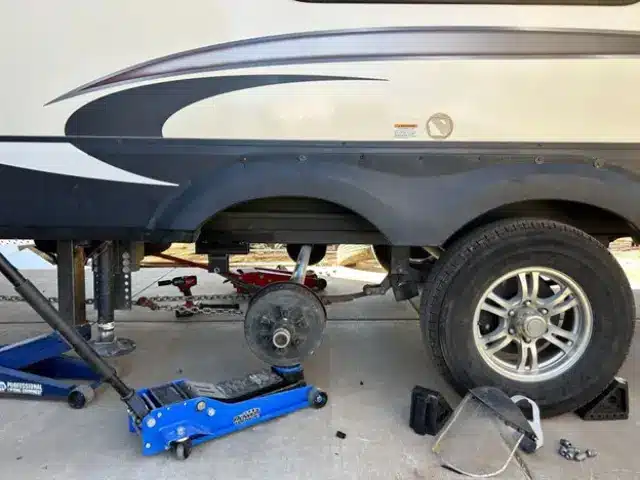
Handling Breakdowns on the Road
If you experience a breakdown while driving, make sure to stay safe. Pull over as safely as you can, turn your hazard lights on, and (provided it’s safe to do so) set up reflectors or cones to divert traffic.
If you’re on the side of a busy road and waiting for roadside assistance, stay inside your vehicle until help arrives or find a safe location away from traffic.
If you can, stay on the shoulder side of the vehicle while assessing the problem so you don’t put yourself at unnecessary risk.
Call for help as a first line of defense, providing roadside assistance with as much detail as possible about where you are (e.g., at which mile marker) and what kind of help you need.
Again, flares or cones are very helpful for this—but use extreme caution when setting them up.
Safety First
Ultimately, you need to use good judgement based on your own personal situation. Do not rely solely on the suggestions in this article. And never put yourself, your passengers, or other drivers in harms way in an effort to divert traffic or solicit roadside assistance.
Maintain a Repair Budget
The lesson I’ve learned (and re-learned) most often while on the road is that unexpected expenses will arise more often than you think. A bit of financial preparation can help alleviate the stress of unexpected repairs so dedicate a portion of your budget to a repair fund.
Also, make sure you understand what your insurance covers and familiarize yourself with when and how to file a claim.
Using Warranties and Guarantees
Extended warranties and guarantees can be useful tools, but they require some planning.
Store all of your warranty information and guarantee details in an easily accessible place, and keep any necessary customer service numbers in your phone so you don’t have to hunt them down in a crucial moment.
If you purchased an extended warranty with your RV or truck, know ahead of time what’s included and for how long. If you need to pay out of pocket for future reimbursement, keep careful track of all invoices and receipts.
SUMMARY
Every Breakdown is a Lesson
It’s hard to remember this in the moment, but every breakdown is a learning opportunity. Several breakdowns and thousands of dollars later, I’ve learned not to delay action on the little dashboard messages that precede a check engine light.
I’ve also learned never to skip a 360-degree walk around my rig before traveling. I’d gotten out of the habit of doing this and then realized that I drove hundreds of miles with a partially detached rear axle on my trailer. I was very lucky I made it to my destination in one piece!
Do not ignore vehicle warning lights or skip RV checks before travel.
Over time, you’ll learn what to look for on your RV. Maintain good records and you may even start to develop a “map” of service techs across the country.
After each incident, ask yourself what went wrong and what you could have done (if anything) to prepare better. Next time, do it.
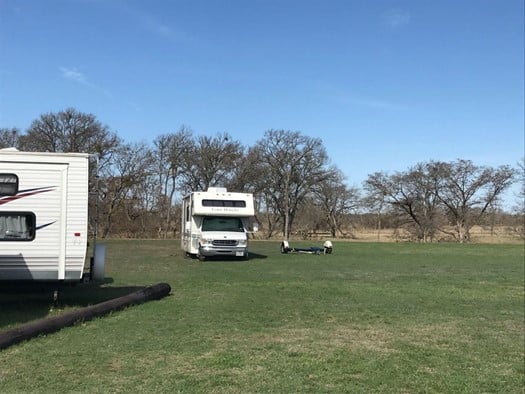
Final Thoughts
Breakdowns are an inevitable part of RV travel—but with the right preparation and knowledge, they don’t have to derail your adventure.
By understanding how to prepare for and handle unexpected repairs, maintaining a repair budget, and learning from each incident, you can face your roadside challenges with confidence.
What steps do you take when preparing for a road trip? We always enjoy hearing from our readers and learning from your expertise and unique experiences. Thank you for leaving your feedback in the comments section below.
Safe travels!

Sarah Kuiken has been a full-time solo traveler for 4 years and counting, but she’s been a solo adventurer for decades. She owns her own copywriting business, Flourish Writing, which she operates from the road. Sarah loves to explore state and national parks with her two dogs, Orion and Piper—wherever they’re allowed, of course. When she’s not whipping up web copy for fellow entrepreneurs, she’s probably out hiking or paddle boarding with the dogs in tow. Learn more about her freelance writing business at FlourishWriting.com.


